How Traveling Quietly Can Benefit Us and the Planet
From quiet parks and silent hikes to quiet hotel rooms and train carriages, quiet travel is on the rise, reconnecting us to an ancient, intuitive way of experiencing the world.
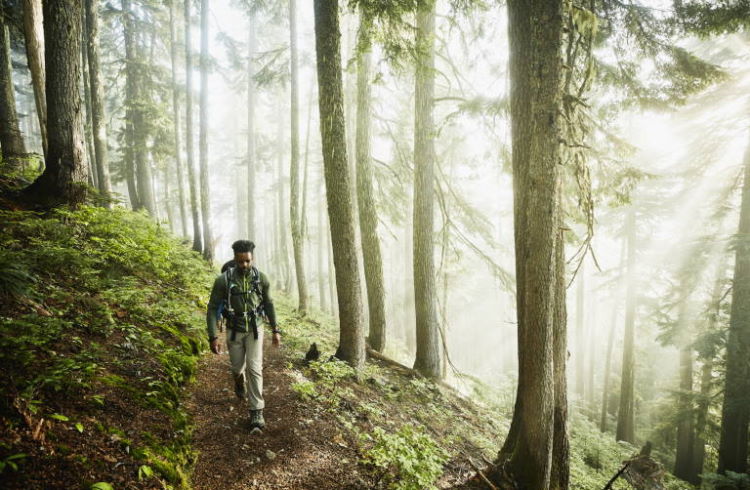 Photo © Getty Images / Thomas Barwick
Photo © Getty Images / Thomas Barwick
A few years ago, I was halfway through a six-day trek in central Australia* when our guide announced we’d be doing something different that morning. Her instructions: my fellow trekkers and I would leave the campsite one at a time, five minutes apart, and follow each other along a high, open ridge in silent single file. It wasn’t just about not talking, we soon discovered. Silent hiking was liberating, a chance to step away from the human-centric world, tune in to our senses and be where we were, under a big sky.
Since then, I’ve done other silent hikes, in other parts of the world. In Japan, they call it forest bathing. Sometimes it’s called mindful walking. But it’s all just the tip of a quiet travel iceberg that’s been growing in recent years, particularly post-pandemic. Today there are more ways to travel quietly than ever before. What’s going on? And why does quiet travel often feel so… good?
- Ancient bodies in a modern world
- Why silence is good for the planet
- Listening to country
- Where to find quiet travel experiences
- City-based quiet places
- Sleep soundly (without noise)
- How to travel more quietly
Ancient bodies in a modern world
We evolved to listen closely to our surroundings, says Seattle-based acoustic ecologist Gordon Hempton. “As a species, we’re essentially, genetically, the same as our ancestors who walked the earth more than 60,000 years ago,” he says. “Of course, today’s world is dramatically different from theirs, but still we’re in these ancient bodies; they’re very well equipped to handle the challenges of modern life, but all our senses evolved to extract valuable, survival-relevant information from the environment, to literally make sense of the world.”
Our sense of hearing is particularly important, he says. “Separate from our own evolution, we also had the advent of the industrial revolution in the mid-18th century, when noise began to be a larger part of people’s lives and the printing press and mass media took off. Today we live in a world of noise pollution, and we get most of our information about the world through reading and other visual means, so we have this misconception that we are visually dominant, but we’re still reliant on sound, just like every other animal species.
“Why is that? Because sound gives us information in the dark, all around us, from miles away, even on the other side of objects blocking something from view. Have you ever wondered why we have no earlids like we have eyelids? Because it’s entirely too risky: to stay alive as animals we needed to constantly listen to the world around us to know that we were safe or where we could find food or a mate.”
Why silence is good for the planet
Our ancient need to listen requires, of course, a certain amount of quiet. Hempton has been on a decades-long quest to find and protect the quietest places in the world and in 2018 co-founded Quiet Parks International, the world’s first and only organization dedicated to “saving quiet for the benefit of all life”.
“Before COVID-19, the question we received most often was: ‘Why is quiet important?’ People would say, ‘We have climate change, endangered species, habitat loss, the world is becoming more chemically toxic, and you want me to think about quiet?’ Well, yes, because when we save quiet places, we save everything else. When we go to truly quiet destinations, we find healthy ecosystems that are taking carbon out of the atmosphere, producing the oxygen we breathe, and native species that are thriving not just surviving.
“Something magical and miraculous happens to us in those places, too: we become who we were meant to be. Our senses come into sensory balance and we begin to think clearly again. No one asks why quiet is important now, since the pandemic; they all experienced that for themselves during lockdowns.”

Listening to country
Similarly, First Nations people in Australia often talk about “listening to country” as a way to realign with nature. “Our word for it is gungaa,” says Arakwal Bundjalung woman Delta Kay, who runs Aboriginal tours in and around Byron Bay, “and it’s about being still, not just using your hearing, but all your senses: looking, hearing, smelling, feeling. As a child, I learned it from my elders. I’d watch them move through the landscape and ask them, ‘What are you looking at? What are you listening to?’ ”
There’s a strong thread of responsibility running through the practice of listening to country, says Kay. “If you don’t listen to country, you miss the things our Mother Earth is telling us, like what’s going on in the environment around us and how we should behave; appropriate behavior is a big part of it, walking softly on country. We don’t think of the earth as this never-ending resource; in our minds, we’re always thinking of our grandchildren’s children.”
Where to find quiet travel experiences
Hempton defines quiet as an experience rather than an absence of sound, so it makes sense to seek out activities that embrace quiet, even silence: wildlife safaris, birdwatching trips, cultural tours to sacred sites, or dive trips (at least while you’re underwater). You could learn to “walk softly” on an Indigenous-led tour; Welcome to Country, a not-for-profit based in Sydney lists more than 200 Aboriginal and Torres Strait Islander experiences all over Australia. Or take a self-guided hike, where logistics are taken care of but there’s no guide, just you and your favorite quiet person.
Quiet Parks International (QPI) has an interactive map showing quiet urban, wilderness, and marine parks worldwide, even quiet hiking and canoeing trails – the world’s first Quiet Trail was designated last year, in Taiwan – all of which are publicly accessible and have passed rigorous testing by Hempton and his colleagues. QPI also offers Quiet Experiences (online and in person) such as “sound walks” and “forest therapy” and Quiet Stays – including one in the world’s first Wilderness Quiet Park, in the Ecuadorian Amazon, which helps the local Cofan people protect their homelands. There are even “mindful adventure trips” in Quiet Parks now, run by US-based Recal (short for “recalibrate”), to help people reconnect with nature and themselves.
City-based quiet places
But you don’t have to go remote, or be active, to find quiet. There are quiet airports such as San Francisco International (SFO) and Sydney’s T1 International Terminal where announcements are kept to a minimum. Some airlines, like Air Asia and Scoot, have child-free quiet zones on some of their aircraft. Trains all over the world – in Germany, Australia, the US and, most recently, Ireland – have quiet carriages, where your phone must be on silent and you can’t make or take calls or watch videos without headphones.
Major cities all over the world have unsung, and often under-rated, quiet places: public libraries (some of the newest are architectural marvels in their own right), museums and art galleries, cathedrals and botanical gardens, even quiet gardens. An app called SoundPrint, launched in 2018, can help you find quiet cafes and restaurants.
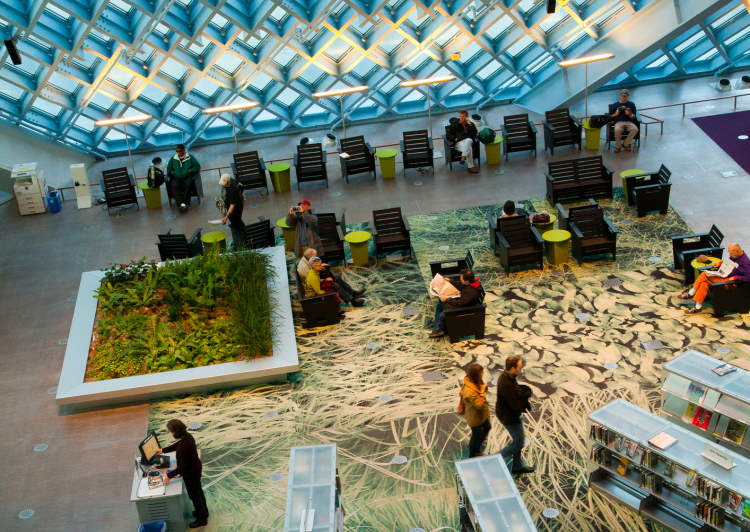
And some cities are quieter than others. Think car-free Venice (although its motorized vaporetti waterbuses can make a racket) or Copenhagen, where bikes outnumber cars. Or Oslo (or any city in Norway) where most cars are near-silent EVs. Stockholm even has its own downloadable Guide to Silence, published in 2021, to help visitors and residents find “calm nature experiences” in the city.
Sleep soundly (without noise)
There are naturally quiet places to spend the night: a swag under the stars in South Australia’s Flinders Rangers, perhaps, or a mountain hut or any wellness retreat where serenity is the priority and the staff speak in smiles. And there are quiet hotels. Quiet Hotel Room, set up by Dutch sound engineers in 2014, has certified more than 150 Quiet Rooms, mostly in Europe, and Crowne Plaza’s 400-plus hotels globally have “quiet zones” with no housekeeping or maintenance between 9pm and 10am five nights a week and noise-reducing features such as soft-closing doors.
How to travel more quietly
Want to help make the world a quieter place on your next trip? Gordon Hempton offers his top five tips:
- Switch your phone to silent or airplane mode. Better yet, turn it off completely.
- Set an intention. “If you travel with a friend, tell them upfront that you’d like to travel for quiet,” he says. “And try to be comfortable with the raw experience of being in a place without needing to talk about it or share it on social media.”
- Be patient. “There’s usually a transition period when we visit quiet places. A lot of people think: I’ve worked so hard to come to this quiet place and now I’m bored! Embrace the boredom – you’re detoxing from a world that has been shouting for your attention – and give it time.”
- Do nothing. “A willingness to stand still and just listen is important, especially in nature. If you remain motionless, and you’re wearing earth-tone clothing, you can become essentially invisible to wildlife. You begin to notice that everything that happens around you is not for our benefit yet it has so much to offer us. A bird doesn’t sing for us, for example, but we hear it as music.”
- Quieten your mind. “Take a deep breath. What is the farthest sound you can hear? The longer you listen, the more you become aware of your auditory horizon. What is the faintest sound you can hear? That determines the fidelity of your experience. Now take another deep breath and listen to where you are, the whole place at once. Notice how you feel; you might find that different places feel different to you. That’s you tuning into the sensory experience of your destination, learning to trust your instincts, being where you are.”
* The author’s first silent hike was on the Larapinta Trail with World Expeditions, whose guides offer bouts of silent walking on various hikes around the world, at their discretion.
Related articles
Simple and flexible travel insurance
You can buy at home or while traveling, and claim online from anywhere in the world. With 150+ adventure activities covered and 24/7 emergency assistance.
Get a quote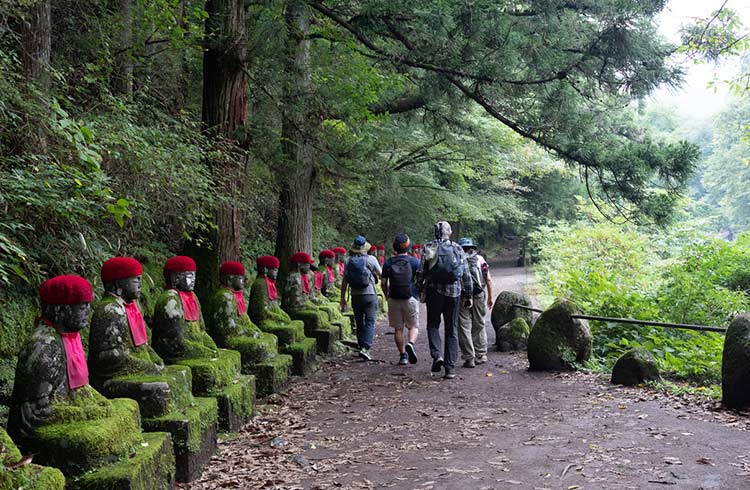
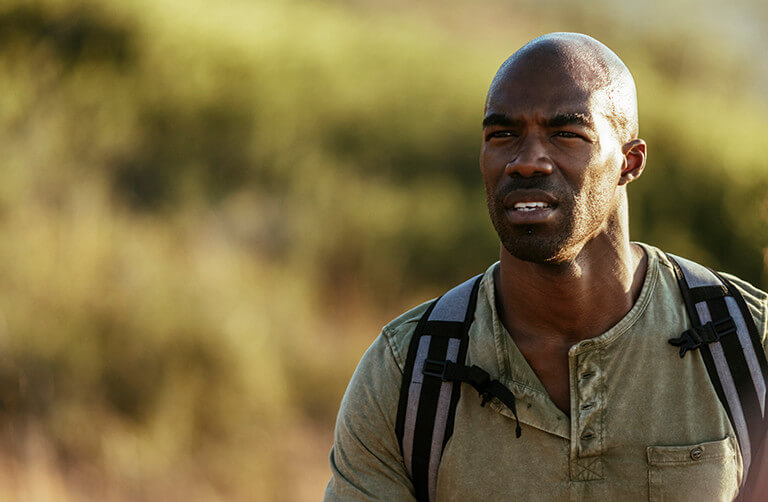
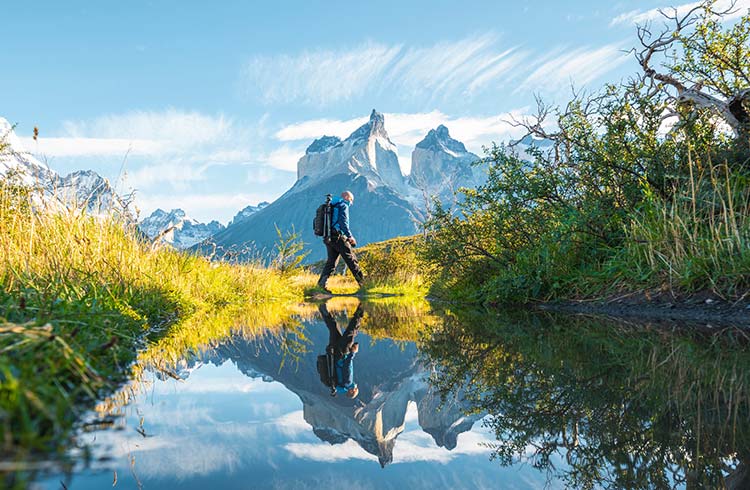
No Comments